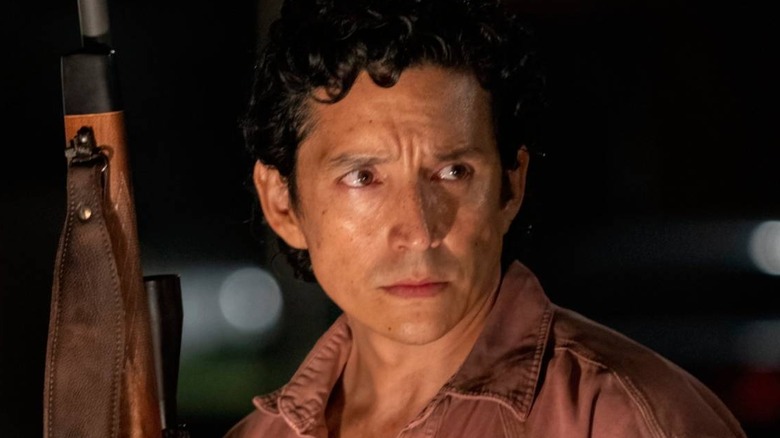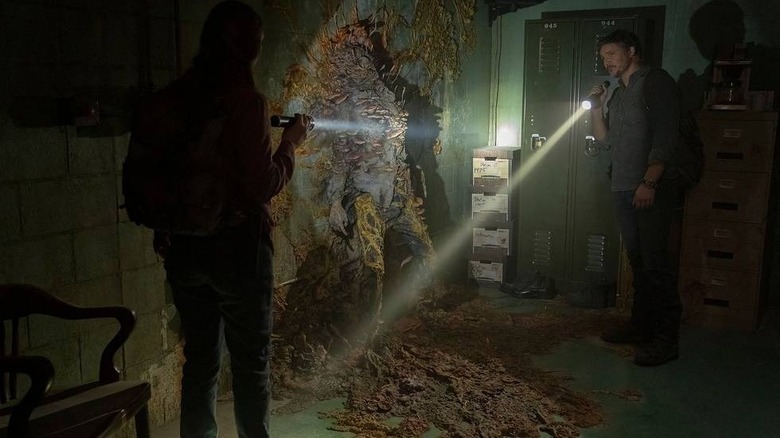HBO's The Last Of Us Uses Science To Make Cordyceps Zombification Even More Terrifying
Video games are known to play pretty fast and loose with real science, especially when it comes to the zombie subgenre. There's no shortage of games where you take on hordes of the undead, from "Left 4 Dead" to "The Evil Within." "The Last of Us" could certainly be a contender within that realm, but it at least changes the formula. You aren't fighting those who have risen from the grave. Instead, you take on individuals who have been infected with the Cordyceps fungus. Of course, the real monsters are your fellow survivors who have sacrificed their humanity to live, but that's a topic for another article.
Following in the footsteps of video game adaptations that have come before, HBO will give "The Last of Us" the cinematic treatment soon enough in the form of its own series. It'll take the drama from the games and likely more than a few Easter eggs to draw in a whole new audience to arguably one of the best games of the 21st century. And it'll inevitably expand upon the material in intriguing ways.
We already know this will happen because of how they'll handle the fungal outbreak. Not a whole lot of attention is dedicated to how the infestation occurred in the game, but the show will reportedly dive more into the science behind the zombification.
The Last of Us plays differently in a post-pandemic world
"The Last of Us" game doesn't really go into detail about how the fungal outbreak began. We're dropped right into the action when Joel and his daughter, Sarah, have to escape their home when the monsters begin infecting their town. Anything that happened before that is left a mystery, but the show goes to certain lengths to fill in the blanks.
The show's co-creators, Craig Mazin and Neil Druckmann, spoke with Collider about the science behind the show and how they wanted to portray Cordyceps overtaking the world. Mazin talked about how they wanted to emphasize how Cordyceps is real and use that to their advantage: "Cordyceps is a fascinating concept, and it's absolutely real. We wanted to push that a little further. We wanted to give us much reality as we could because the realer that is, the more we connect to the characters that are in that space playing around."
Plus, it's not like pandemics are a fictional concept anymore. Mazin went on to discuss how the COVID-19 pandemic informed their decision to begin the first episode in a unique way from the game. He stated, "A lot of the reason this show begins the way it does, with that scene in the '60s, is to say, 'Look, the context is, there are viral pandemics and they are quite dangerous, but there's something out there that's worse. And it may sound funny to you, but let me explain why.' And then, you start to realize, 'Oh, that's not good.' And also, it's been there all along. So, when the outbreak happens, it's not happening suddenly or capriciously. It's finally happening." You can catch the terror of "The Last of Us" in all its glory when it debuts on HBO on January 15.

